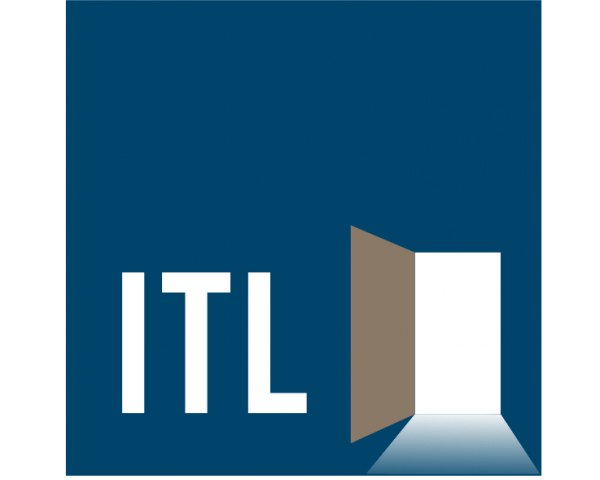 |
Pinpoint’s Head of Client Services is Shannon Shallcross, a TEDx speaker and 2021 Entrepreneur in Residence for the Breakthrough Lab Accelerator at Brown University. Shallcross has decades of experience as an executive leader, entrepreneur and advisor in insurance and data science. She has advised many Fortune 500 clients on analytics strategy and was the Co-Founder of BetaXAnalytics, a data science company that pioneered cutting-edge capabilities in artificial intelligence to pull actionable insights from data. Prior to this, Shallcross spent 12 years running operations in 18 states for Amica Insurance, where she was also responsible for the company's proprietary credit-based insurance scoring model. She has a Master of Science degree in Insurance Management from Boston University. |
Paul Carroll
To start us off, would you give me your general sense of where we are as an industry at the moment?
Shannon Shallcross
This is a really challenging time, from so many angles. Going back to 2022, we started to see carriers feeling a lot of pain, specifically on personal lines, as inflation increased loss costs. All of a sudden, no one's rates were adequate for auto or homeowners, not even close. Carriers have been scrambling to get rate increases, but right now almost no personal lines carrier can say their combined ratio is at a profitable point.
Everyone is concerned about their AM Best rating, but even if you don't get downgraded, the industry still has a negative outlook.
Then we have reinsurance. P&C carriers are having to very tightly manage how they're bringing in money, but what they have to pay to get reinsurance is completely unregulated at a time when the market is very volatile. You see carriers that are getting squeezed from all sides.
I believe carriers need to get laser-precise about their ability to truly understand risk and act on those insights as early as possible because they just do not have the luxury to have any processes that are not optimized. That's really the key to help their return to profitability.
Paul Carroll
That is a great setup for what I want to ask about innovation. The insurance industry is not known for innovation, even though it's been a huge adopter of some of the most advanced computer and data technologies for a very long time. How do you get people to embrace innovation in ways that maybe they haven't before so they can tackle some of these problems you're describing?
Shannon Shallcross
In some ways, the profitability problems we're seeing now are both a blessing and a curse—a blessing because carriers will have more of an appetite to find solutions when they're feeling that pain.
In insurance, as you know, the carriers are typically slow to lead but fast to follow. A lot of times, a carrier is not going to want to implement a new solution when they don't know that several others have traveled that path before them and have seen that the solution worked.
Now we're at a point where so many new technologies are exploding, and no one really knows what problems they can solve. The industry is being forced to test and learn in real time. We don't have the ability to wait three years to see what the clear winner is. There's really a race to find the technologies that are going to help us to solve the real problems that we have today.
Paul Carroll
You have an interesting perspective, having worked on the carrier side and then also having founded a data analytics company that you sold prior to joining Pinpoint Predictive. What does the right answer or the right culture look and feel like?
Shannon Shallcross
This really goes for any company, not just for the insurance industry, but creating the right company culture to allow people to truly embrace innovation is the key.
In the insurance industry—and I can say this because the first 12 years of my career I worked on the carrier side—people are largely risk-averse. They don't want to be taking on initiatives if there's a possibility they could fail.
But in anything having to do with technology and innovation, failure is part of the story. The only way you can get to the solution that really works is by finding out what doesn't work. So it's really helpful, particularly for carriers, to adopt a company culture where someone's career is not going to be over if they end up trying something that fails.
The idea of failing fast is a very healthy one. When you have a proof of concept that has really compelling business results, great. Let's try it. But if it doesn't work, we're going to shut it down really quickly. That doesn't mean your career is going to be over.
A lot of times in this industry, there is that fear that if I fail one or two times, things are going to be over. We need to set a culture within our own companies that failure is part of getting to the solution. That is the way we're going to solve problems.
We just want to fail fast and move on and try that next thing. That's what is really going to help this industry embrace innovation.
Paul Carroll
I'm a big believer in engendering corporate myths. Part of the reason is that when I covered IBM for the Wall Street Journal in the ‘80s and ‘90s, I saw how much some stories from their early days shaped how people thought and acted. My favorite is about Tom Watson Jr., who was the ferocious CEO in the ‘50s, ‘60s and into the ‘70s. At one point, he called somebody into his office after the guy had lost $10 million on a project. Watson asked the guy why he thought he’d been called in, and the guy said, “I assume you called me here to fire me.” Watson said, "Fire you? Hell, I just spent $10 million educating you. I just wanted to be sure you learn the right lessons."
I can’t even count the number of IBMers who told me that story. And I wonder if you've seen stories like that used elsewhere, or what you have seen senior management do that can engender this sort of culture that believes in noble failure.
Shannon Shallcross
That's a really great story. And it shows why the messages need to come from the top.
You have to instill the belief that failure is okay. You fail quickly, you pivot on to the next thing and that is okay. Failure has to be part of the innovation story, for long-standing companies and for startups.
Paul Carroll
It's also been my thesis that it's sometimes easier to instill a culture of noble failure with smaller companies than with huge companies. Are you seeing things you can do at Pinpoint Predictive that maybe the carriers weren't doing when you spent your 12 years there?
Shannon Shallcross
Well, I've seen a lot of changes since 2002, when I started in the insurance industry. You probably know this quote from Eric Schmidt from Google, "There were five exabytes of information created between the dawn of civilization through 2003, but that much information is now created every two days." That quote was from 2010. At this point, it might only take one day to create five exabytes of information.
When I started in the insurance industry, it was very much, "Here's how we win this game. We are going to keep an eye on our rates, and we're going to keep an eye on our underwriting roles, and those are the only tools that we have to run our business." Now, there's so much more information, so much more data, so many more innovative tools that are available to help us to run our businesses well.
The rate of change in technology over the past two decades has been mind-boggling.
Paul Carroll
In my experience covering technology, Gen AI has had a more sweeping debut than anything other than perhaps the internet, and probably even more than the internet. So I'll ask, first, how you're seeing that play out, and then I want to ask you a little bit about the regulation of it.
Shannon Shallcross
This is probably one of the first times we have stumbled on a technology where we don't quite know where this is going to go. Even people who have been involved with bringing ChatGPT to the public have said as much. This is why it's great to see that the people who have been so close to bringing these technologies to fruition are the ones who are the biggest proponents for placing reins on this technology. We need to make sure we are doing things that are making the world a better place.
Paul Carroll
Do you have thoughts on how those guidelines ought to develop or maybe how the insurance industry ought to act in the meantime, while we set up the proverbial bumpers as we try to roll the bowling ball down the lane?
Shannon Shallcross
I think education is first and foremost. The worst thing that can happen is that people don't look beyond the headlines. They just say, Okay, New York is starting to regulate artificial intelligence, or Colorado is regulating artificial intelligence, and they interpret that as a bad thing. It's actually a good thing.
It just requires education from our leaders, especially on the vendor side. We at Pinpoint have been at the forefront of this for a long time and have been helping to educate even our clients. Now to see a little bit more definition coming out from a regulatory standpoint is really important.
The second key is developing the appropriate risk management framework in your company. This was outlined in the NAIC bulletin that they released in December 2023 on regulating the use of artificial intelligence and how carriers are working with vendors. That piece talks about the importance of having that risk management framework. It's just doing that due diligence to make sure people understand how to evaluate these solutions and how to put the proper guardrails in place to ensure that they're being managed properly.
Paul Carroll
I've always found it interesting that while people think of innovation in Silicon Valley as this sexy thing and insurance as this sort of dull industry, there's actually no innovation that happens without insurance. You can't have Google driverless cars and all that sort of stuff until somebody figures out a way to deal with the risks. So I think there's some hand-in-glove interaction going on between insurance and Gen AI that can probably benefit all of us.
Any final thoughts?
Shannon Shallcross
I’ll add a final thought on the regulatory piece, only because this is a topic of such interest right now to carriers.
We, Pinpoint Predictive, embarked on a third-party AI audit that we finalized in 2023. We do risk predictions for the insurance industry, and the audit was to ensure that the data we were using was not adding bias to the modeling process. The auditor also made sure that all our processes and modeling conformed to any existing regulation and looked ahead to the next five years. If the insurance industry starts to look to other industries to mirror some of their regulation regarding bias or discrimination, how would that change the context of how carriers can use artificial intelligence?
The auditing company that we partnered with is called Luminos Law. They were amazing. They partner with Fortune 500 companies to advise them on their use of artificial intelligence. They also have weighed in for governmental bodies and helped to release the NIST AI risk management framework. So they definitely know not only artificial intelligence but also understand specifically the insurance industry. The other thing that's cool about them is they employ data scientists. They basically perform this level of due diligence that a carrier would not be able to; they invest the time and resources to go through all the thousands of data points that we use, and also to put us through rigorous statistical tests to check for bias.
We took this audit on because this is something that's always been really important to us. We have provided carriers with all of the guardrails that we have in place, but until the audit, it was just a "trust us" thing. We never had our data and processes verified by a third party.
This level of due diligence was a very large undertaking for us, but we learned a lot in the process. We came through with a clean bill of health, but everything we learned we turned around and used to help educate some of our clients, who had a lot of the same questions on how one evaluates artificial intelligence. What do you even look for?
Insurance is all about fairness. When partnering with any third party that's using an artificial intelligence solution, it is best practice to ensure that they have had a third-party audit of their use of artificial intelligence just to ensure that you're doing the right thing and have the right controls in place.
Paul Carroll
I think that's very smart. I think audits will have to be implemented very, very broadly. A lot of this AI stuff is just a black box. You don't know what's going on in there. And there has to be some way to double check and make sure that the decisions are being made based on real data and not on gender, race, any number of other things that should not be part of the decisions.
This was great. Thank you so much for your time today.
Sponsored by ITL Partner: Pinpoint Predictive







